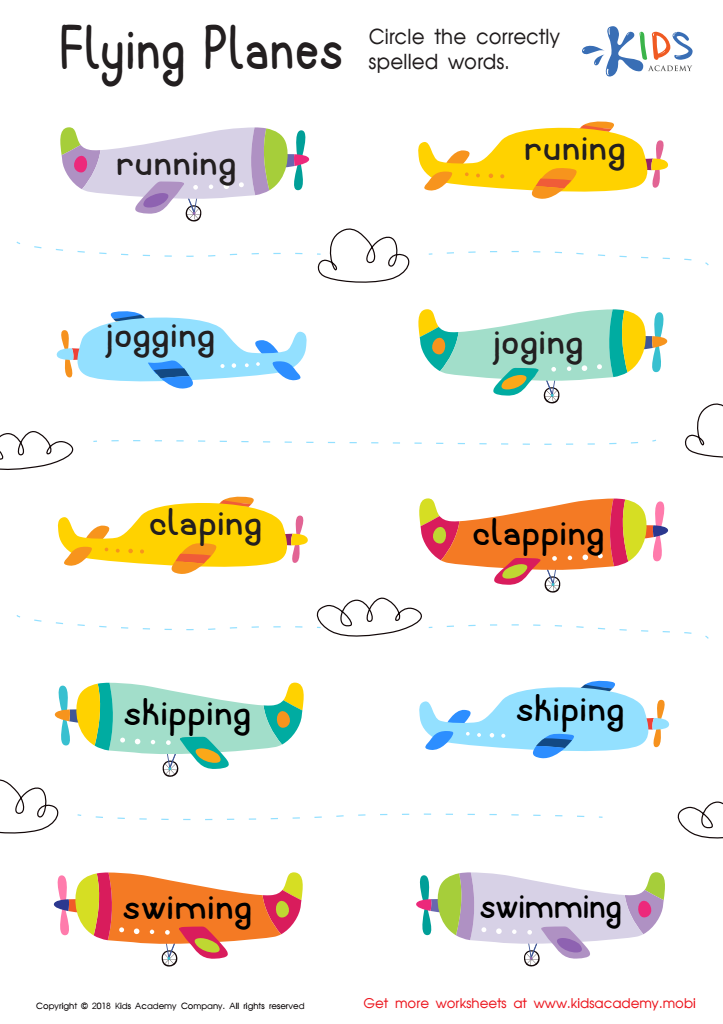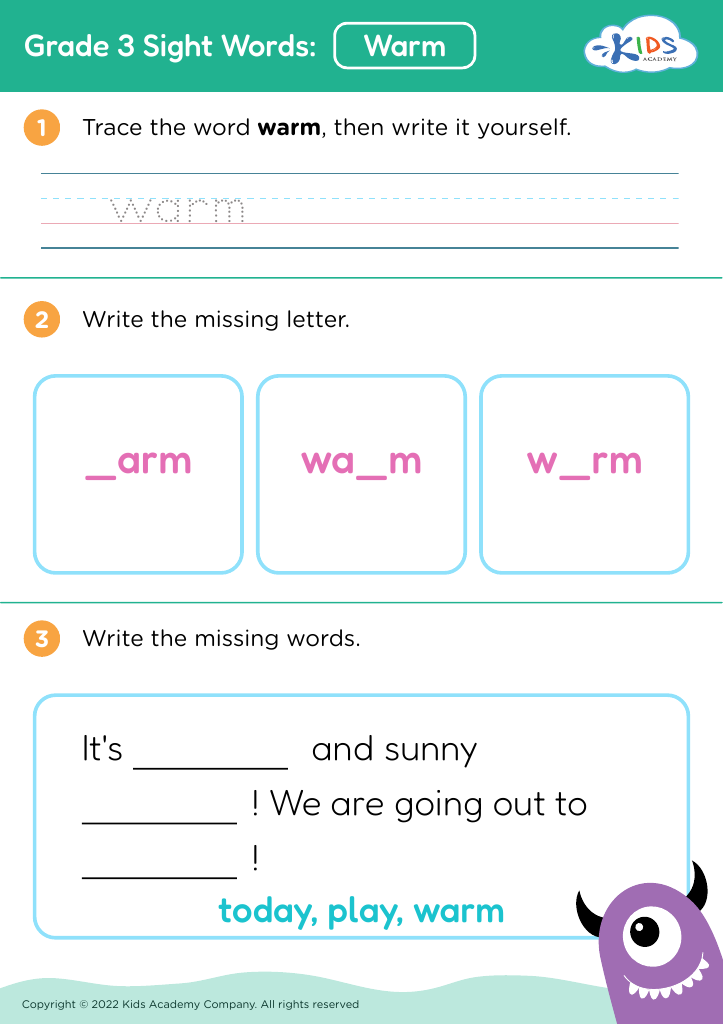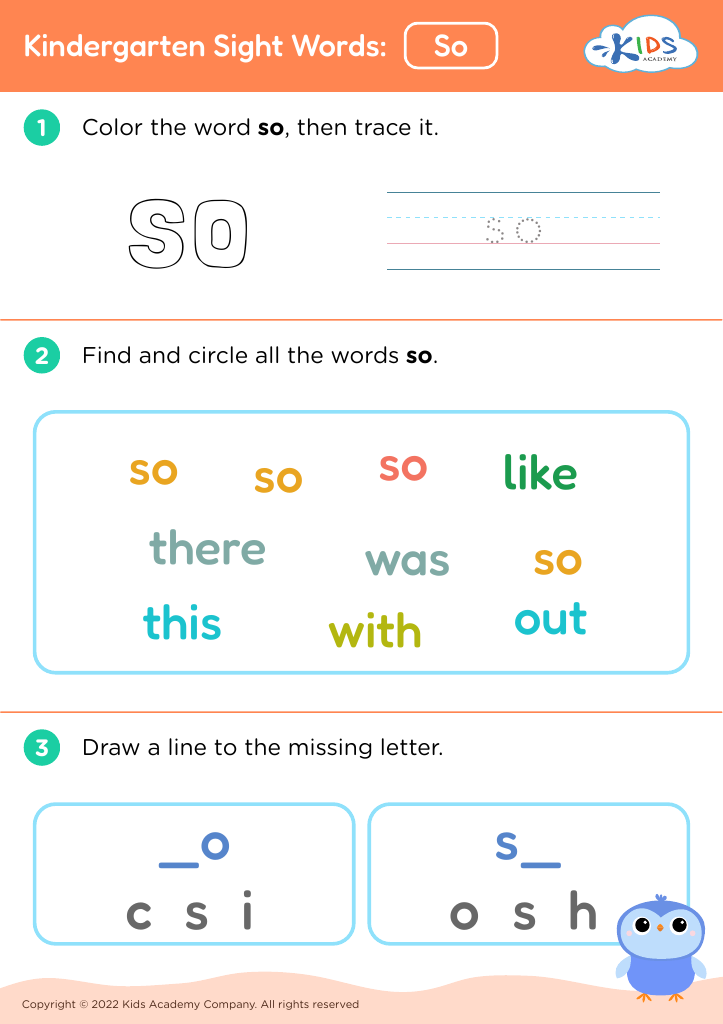Understanding subtraction Reading Worksheets for Ages 4-8
3 filtered results
-
From - To
Explore our "Understanding Subtraction" reading worksheets designed specifically for children aged 4-8. These engaging resources aim to make learning subtraction fun and accessible, helping young learners develop essential math skills through a variety of interactive activities. Our worksheets feature vibrant illustrations and relatable scenarios, encouraging kids to grasp key subtraction concepts with ease. Great for home or classroom use, these worksheets foster a positive learning environment while boosting confidence in math abilities. Perfect for early learners, our thoughtfully created content supports both independent study and guided learning, ensuring your child builds a solid foundation in subtraction. Start the adventure today!


Flying Planes Worksheet
Understanding subtraction is a fundamental skill that plays a crucial role in a child's early development, particularly for ages 4-8. During these formative years, children are not only learning mathematical concepts but also developing cognitive and critical thinking skills essential for future learning. Subtraction teaches them to understand quantity, value, and how numbers operate together.
When parents and teachers emphasize the importance of understanding subtraction, they help foster a child's confidence in mathematics. This lays the groundwork for more complex arithmetic and logical reasoning that comes later in their education. Moreover, comprehension in subtraction can empower children to tackle real-life problems, such as measuring out ingredients for a recipe or making change during transactions, thus enriching their everyday experiences.
Additionally, engaging children in learning subtraction can enhance their reading and language skills, as many educational materials weave stories or scenarios around mathematical problems. This integration of subjects not only makes learning more cohesive but also instills a love for both numbers and language. Ultimately, an early grasp of subtraction and related skills can lead to a clearer understanding of broader mathematical concepts, setting the stage for a brighter academic future. Thus, nurturing this foundational skill is vital for parents and teachers alike.
 Assign to My Students
Assign to My Students























